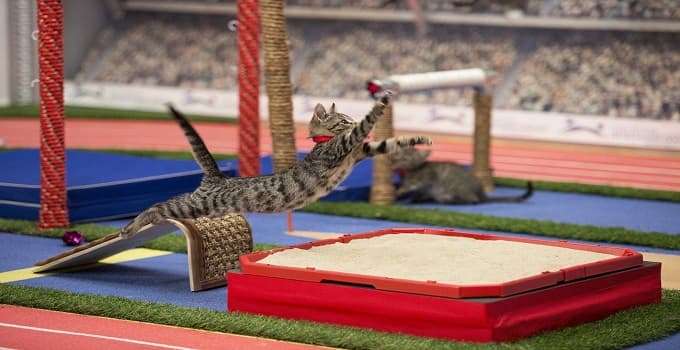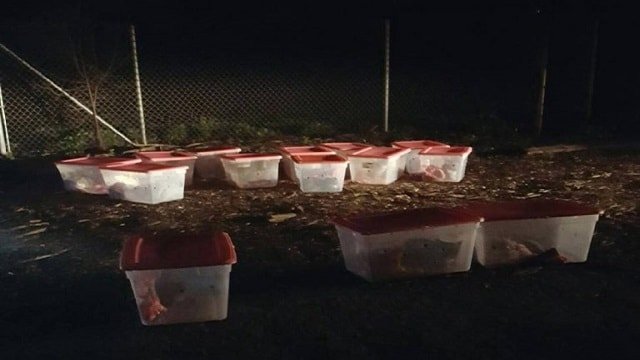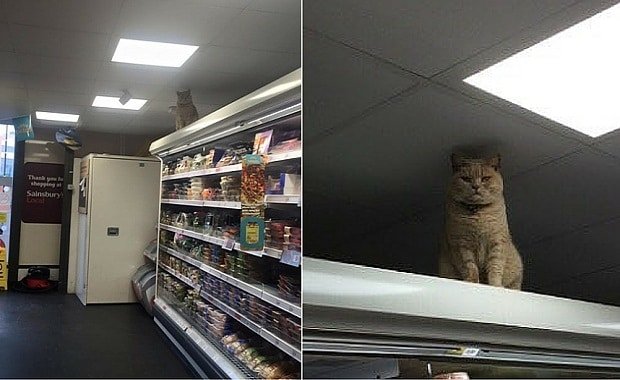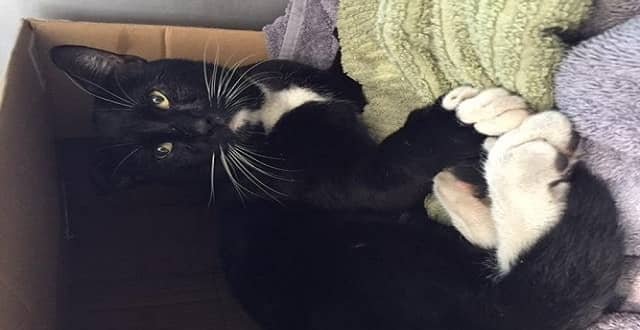UNITED KINGDOM – Claude, a 16-year-old cat, was taken away from the Byrnes family and put to sleep against their wishes by the animal welfare charity
The RSPCA has since been accused of acting unlawfully after seizing a family’s pet cat – which was then put down against the owners’ wishes – in an official review which described the charity’s actions as a simply a “travesty”.
The 16-year-old Turkish Van, named Claude, was taken away from Richard and Samantha Byrnes back in 2013 by RSPCA inspectors after a neighbor complained about the animal’s appearance. that his fur was matted.
It was destroyed even though Mrs Byrnes tearfully begged the animal inspectors to wait until her children, aged 12 and 14, were able to say goodbye to the animal they had known all their lives.
Now an official review conducted by Stephen Wooler, the former HM Chief Inspector to the Crown Prosecution Service, has found the RSPCA had failed to disclose material to the Byrnes in a subsequent animal cruelty prosecution, The Times (£) reported.
The RSPCA’s actions also provoked a huge hate campaign against the family, the unpublished report found.
The charity also told the owners they would be taken to court – however evidence was unable to establish any more than “the possibility of suffering whereas the criminal law is concerned with what can be established beyond reasonable doubt”, Mr Wooler’s review said.
The RSPCA issued a certificate claiming that it held no undisclosed material that might assist the family’s defense or undermine the prosecution.
However, Mr Wooler said the charity did indeed hold this information.
“The law is quite clear that when sensitive documents contain material that is disclosable, a mechanism must be found of achieving that, or the case has to be discontinued.
“There is no public interest that will defeat the requirement to make disclosure when the interests of justice so require,” said his report.
Mr Wooler concluded that Claude had been removed without lawful authority and there appeared to have been no explicit consent by the owners, nor authorization from the police.
“A striking feature of the events is the confidence displayed by [the RSPCA] that the police would unquestioningly acquiesce in whatever actions [it] requested.
“Respect for due process and the rights of individuals was largely absent,” the official report said.

The 16-year-old Turkish Van, named Claude, was taken away from Richard and Samantha Byrnes by RSPCA inspectors Photo: RSPCA
The court action was later dropped by the RSPCA after Mr Byrnes exercised his right to get the Crown Prosecution Service involved.
After this family went public with their complaints over the handling of the case, the RSPCA wrongly claimed two vets, including the family vet, had examined Claude and advised that he be put down.
The RSPCA inaccurately told the BBC Radio 4 Today program that Claude was one of the thinnest cats it had ever seen and had been kept overnight specifically so that the children could say goodbye.
Mr Wooler concluded in his report: “This was a travesty.”
The animal had, in fact, only been kept overnight because Mrs Byrnes declined to give consent, and when the parents requested a short postponement of the euthanasia the RSPCA firmly refused.
“There followed some very coercive comments,” Mr Wooler found.
Further comments by the RSPCA on national radio “generated comments, some intemperate and distressing, directed at Mr and Mrs Byrnes and their young family”, he continued.
“It is necessary to say no more than that it is no part of the role of a prosecuting authority to engage in a war of words through social media,” Mr Wooler said.
“Prosecutors should never speak or act in a way that is likely to call into question judicial determinations and the outcome of cases.”
The RSPCA just last year issued a public apology to Mr and Mrs Byrnes of Tring, Hertfordshire, for what it admitted was “disproportionate and insensitive” conduct which had caused “unnecessary distress to the whole family”.
Sara-Lise Howe, the couple’s lawyer, said that the RSPCA had unlawfully usurped their rights and then made a “disgraceful attempt to besmirch the Byrnes’ reputation in the press in order to salvage their own”.
The family has said Claude’s coat was indeed in a shabby condition because the pet disliked grooming and had to be put under anaesthesia to undergo a trim.
An RSPCA spokesman said: “We have already accepted mistakes were made in our handling of this case. Our goal in commissioning the report was to learn from our mistakes. We have done this.
‘Significant improvements and refinements to our processes have been made to help ensure that the RSPCA responds appropriately and proportionately to situations like this which require sensitive handling that takes account of both animal welfare and human issues.
‘The RSPCA apologies again to Mr and Mrs Byrnes and their family.”
MPs are currently holding an inquiry into the charity’s role in prosecuting 80 per cent of animal welfare cases in England and in Wales.










